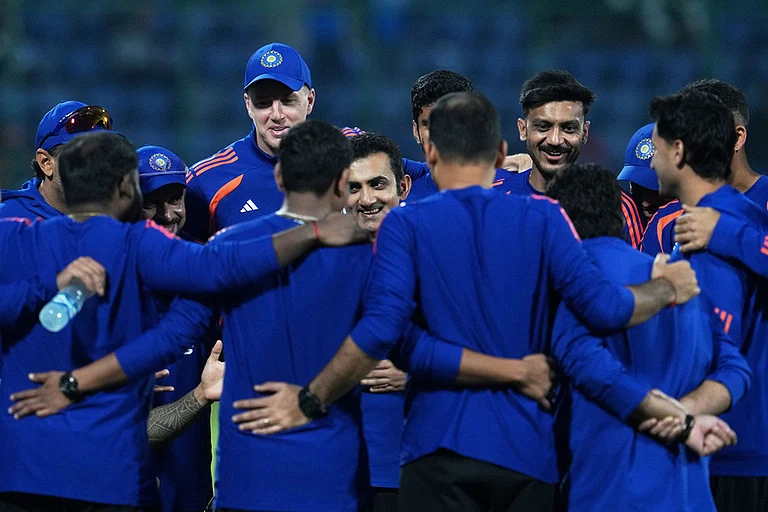Indian health authorities are closely monitoring the emergence of a new subvariant of the coronavirus, named JN.1, which has sparked concern across the nation. So far, 21 cases of the JN.1 subvariant have been identified, with 19 cases reported in Goa and one each in Kerala and Maharashtra. The Indian Council of Medical Research (ICMR) is actively conducting genome sequencing to better understand the characteristics of this new strain. India reported a surge in Covid-19 cases on Thursday, registering 358 new infections in the last 24 hours, as per data released by the Union Health Ministry.
Two individuals, members of the same family returning from the Maldives to their hometown in Indore, were found to be infected with the JN.1 subvariant. While the 33-year-old woman completed a seven-day home isolation after being diagnosed on December 13, the 38-year-old man tested positive on December 18 and is currently under home isolation. Samples from both patients have been sent to Bhopal's All India Institute of Medical Sciences (AIIMS) for a comprehensive genome sequencing test to determine the specific variant.
In a tragic incident, a 64-year-old man in Indore succumbed to COVID-19 infection, raising concerns about a potential link to the JN.1 subvariant. Karnataka Health Minister Dinesh Gundu Rao stated that the cause of death is yet to be confirmed, as the patient had multiple comorbidities, including heart failure, TB infection, hypertension, lung disease, bronchial asthma, and pneumonia.
The JN.1 variant, a descendant of the BA.2.86 lineage of SARS-CoV-2, was first identified in late 2023 and is marked by over 30 mutations in the spike protein, indicating a high potential for immune evasion. The World Health Organization has classified JN.1 as a variant of interest.
While Delhi's Safdarjung Hospital doctors have emphasized the need for vigilance, they have also reassured the public that there is no cause for panic. Dr. Rohit Kumar highlighted that COVID-19 is an RNA virus that undergoes changes over time, leading to the emergence of new variants. Although no cases have been reported in Delhi, testing and genome sequencing efforts are ongoing.
In response to the rising cases, the Karnataka state government plans to increase testing to 5,000 tests per day over the next three days. Additionally, schools in the state are being vigilant, with the Associated Managements of Primary & Secondary Schools issuing advisories to monitor students for symptoms and take necessary precautions.
As the festive season approaches, health officials are urging individuals to remain cautious, especially those with pre-existing health conditions. The symptoms of the JN.1 subvariant, similar to previous Omicron strains, include fever, runny nose, sore throat, and gastrointestinal issues.


























